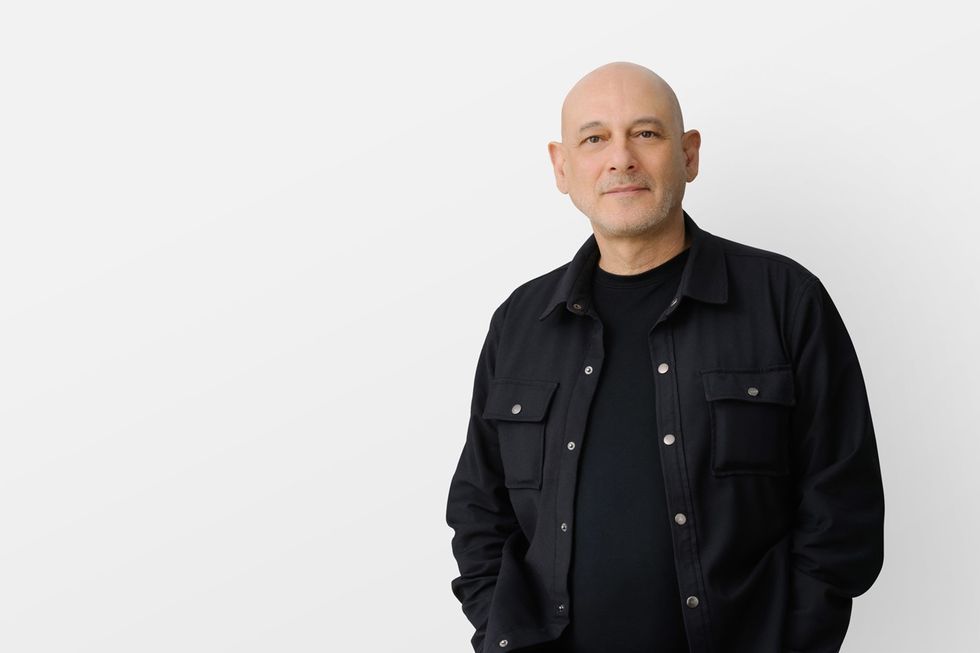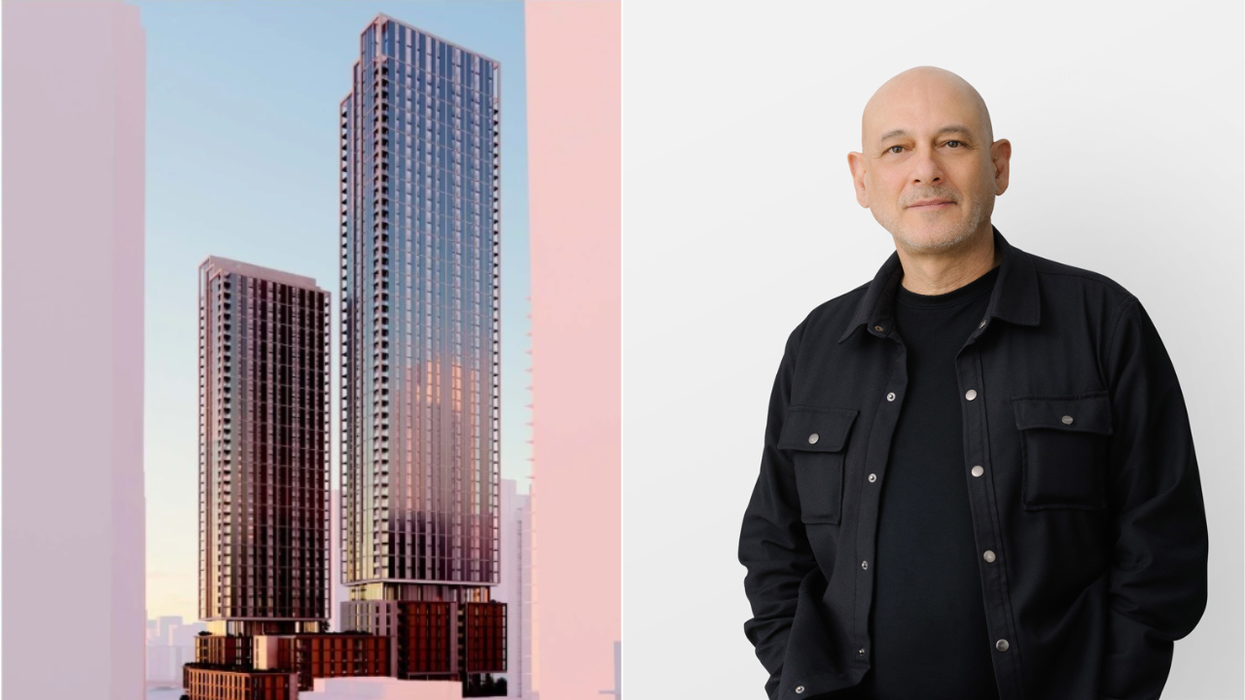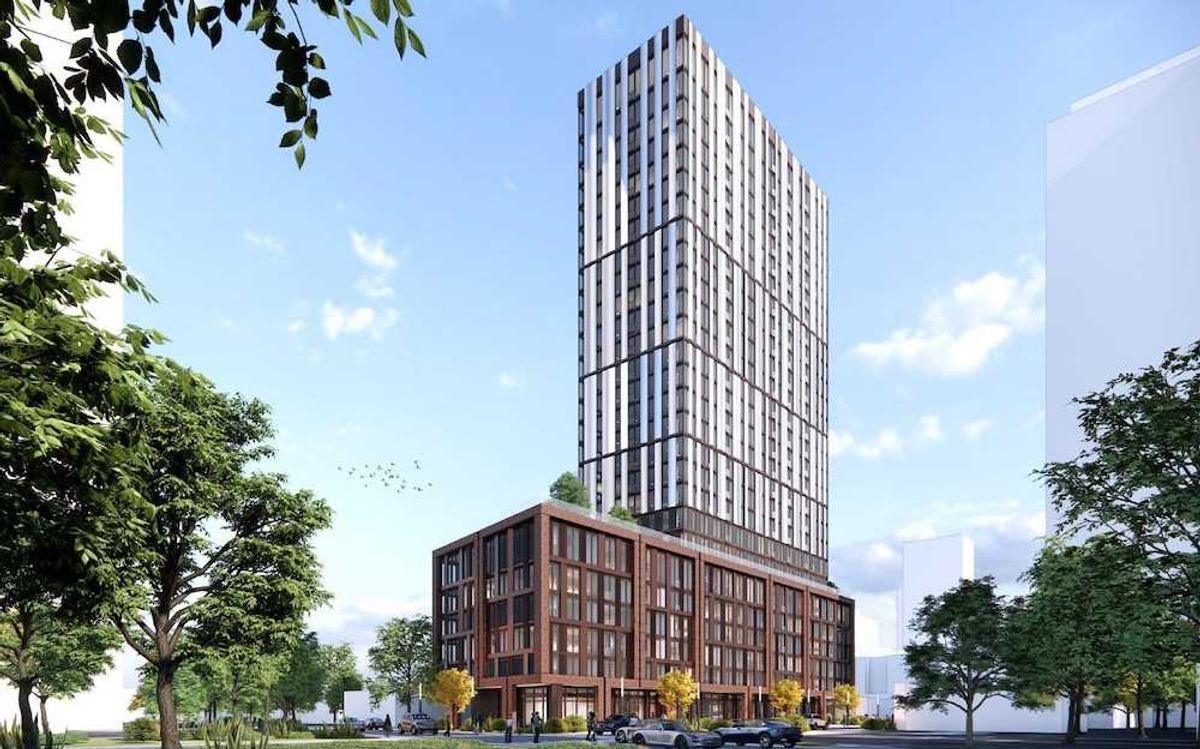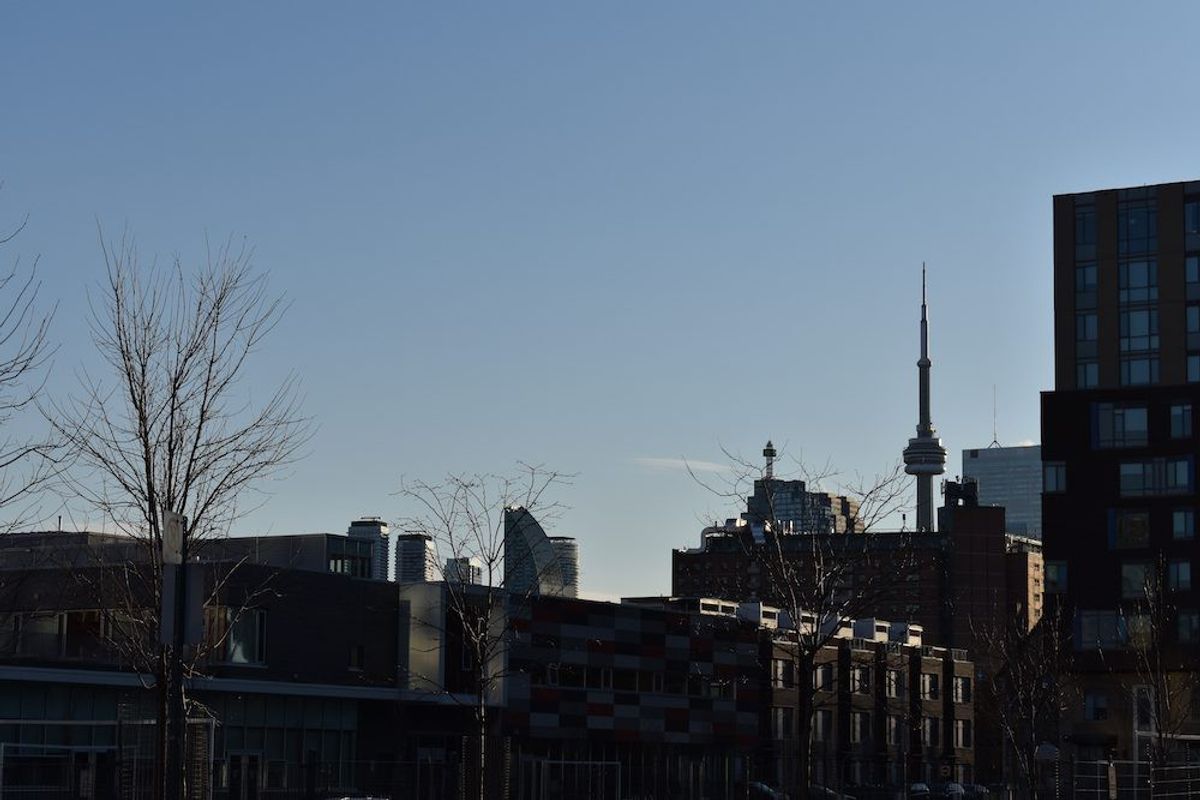Gregory Henriquez heads up one of Vancouver’s best known architecture firms, Henriquez Partners, and now he oversees a new advisory services firm called Archaeology – which he said is the City of Vancouver’s first hired consultant for its new program to develop city-owned housing.
The City’s new Housing Development Office (VHDO), announced earlier this month, has a mandate to develop on City-owned land, launching with 40 and 54 storey towers and 1,136 units on a large downtown land assembly bordered by Burrard and Hornby and Pacific Street. Storeys reported on the City-applicant rezoning submission in December, prior to the announcement of the VHDO pilot project.
Henriquez started Archaeology about a year and a half ago, in response to demand by landowners who needed architectural guidance within the Broadway Plan, or on Simon Fraser University’s Burnaby Mountain, to develop rental housing, before committing to a developer. The VHDO approached Archaeology about acting as a consultant to help set the parameters for the first roll out of City-owned land developments, including massing on the site, density and heights, unit mixes, and the usual upfront work done prior to a developer submitting a rezoning application.
“It sets the conceptual framework which then a developer could bid upon with some sense of security to know what they would be able to build,” said Henriquez.
It won’t be a one-size-fits-all approach.
“Some of the buildings will have more information than others, depending on the complexity of the project. Some are more massing exercises to prove to planning what can fit on the site. Other ones might be pushing the envelope on height or floorplate sizes or density. They’ll need more architecture in order to be proven out. And so, each will vary.”
Several of the city’s big architecture firms have already been named for the actual design work and applications for each site. Archaeology will directly work on one of the sites, said Henriquez, but he won’t play any role in the final decision on developer partners.

City hall is the biggest landowner in the city, with around $6 billion worth of real estate in the Property Endowment Fund. Sites so far include the assembly at the north end of the Burrard Street Bridge, as well as Granville and Pacific, the 2400 Motel on Kingsway, at Main and Terminal, and another in Marpole. But this is just the start. The City owns hundreds of properties.
“We're providing services that they don't have within the City [of Vancouver], which allows them to act as developers, independent from the planning department,” said Henriquez.
“We're in the first stage, and we're rezoning these five sites, and then the development corporation is being put into place, is being crystallized as an entity. And then they’ll be eventually going out [looking] for [development] partners. That’s what I understand,” Henriquez said.
The City’s announcement was followed by immediate backlash because the housing does not include below-market units and will target those earning $90,000 to $194,000 per year. The development industry also spoke out against the move, citing private developer applications already in the pipeline. The City’s market-rate rental would only increase competition for rental, said some industry experts.
“I think they misunderstand what it's all about,” responded Henriquez. “The City has some land. The land is sitting vacant and not generating any revenue for the City, right? They will build housing that's needed, which will generate revenue for the City to do other good deeds elsewhere. When a developer does a development, they do it for themselves to make money, and the City usually extracts some form of affordability, usually 20% being affordable housing of some sort. And that is the gift back to the City in exchange for the incremental density they get in a rezoning.
“And the developer makes money. In this case, all the revenue from this goes back into the city coffers to reduce property taxes, to pay for social housing, and to build daycares. This is not a competition. This is revenue generation for the city.”
The model, he added, is “nothing new.” He cited the example of Singapore, where most housing is owned by the government. And the City of Toronto has CreateTO, whose mandate is the development of city-owned land. As well, he cited Simon Fraser University, which has worked with developers to develop leasehold land for its UniverCity residential community and the University of BC, which has a community planning department that oversees development projects.
Developer and real estate consultant Michael Geller had publicly criticized the City’s move into development. He said he understands that “the City wants to make money from lands it owns in the Property Endowment Fund.”
“I am totally supportive of the City generating revenues from its lands. But having worked at CMHC and SFU and served on the boards of British Columbia Buildings Corporation and Surrey City Development Corporation, I am very sensitive about the potential conflicts of interest that can arise when a public entity starts doing precisely what the private sector is doing,” he said in an email response.
“I don't think the City should be undertaking market rental housing when a private developer might be seeking approvals to undertake a similar development nearby. This applies whether the City is undertaking the project in partnership with another private developer or acting as the developer, which worries me even more,” said Geller.
“That is why I recommend that the City consider developing affordable ownership housing on leased land, which is something the private sector cannot do. It can make money through shared equity programs, graduated payment leases, and other innovations not available to the private sector.”




















